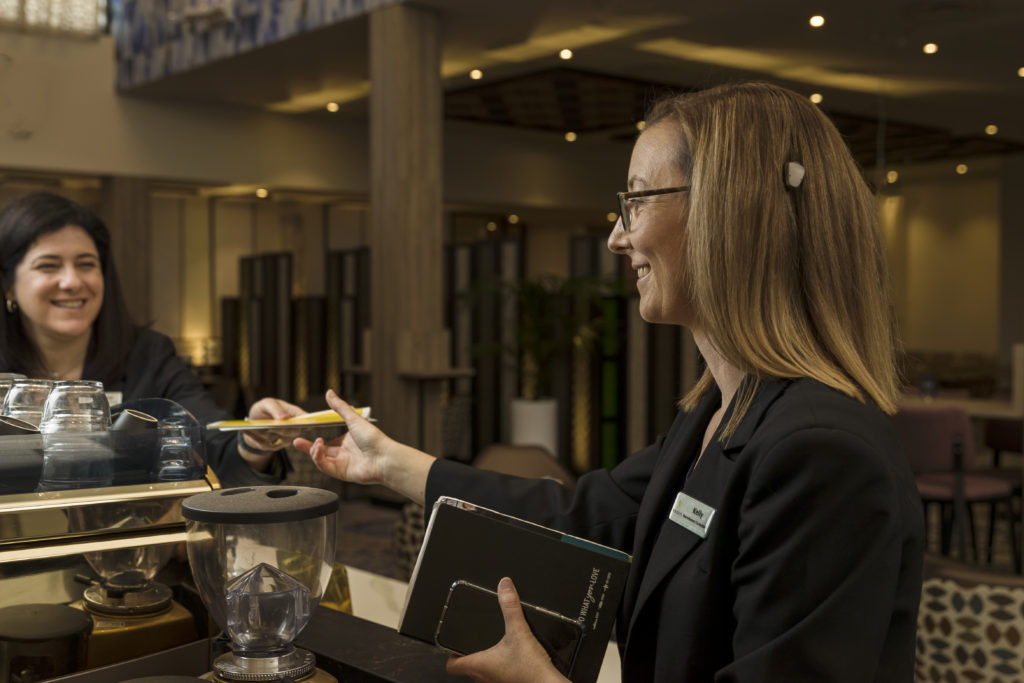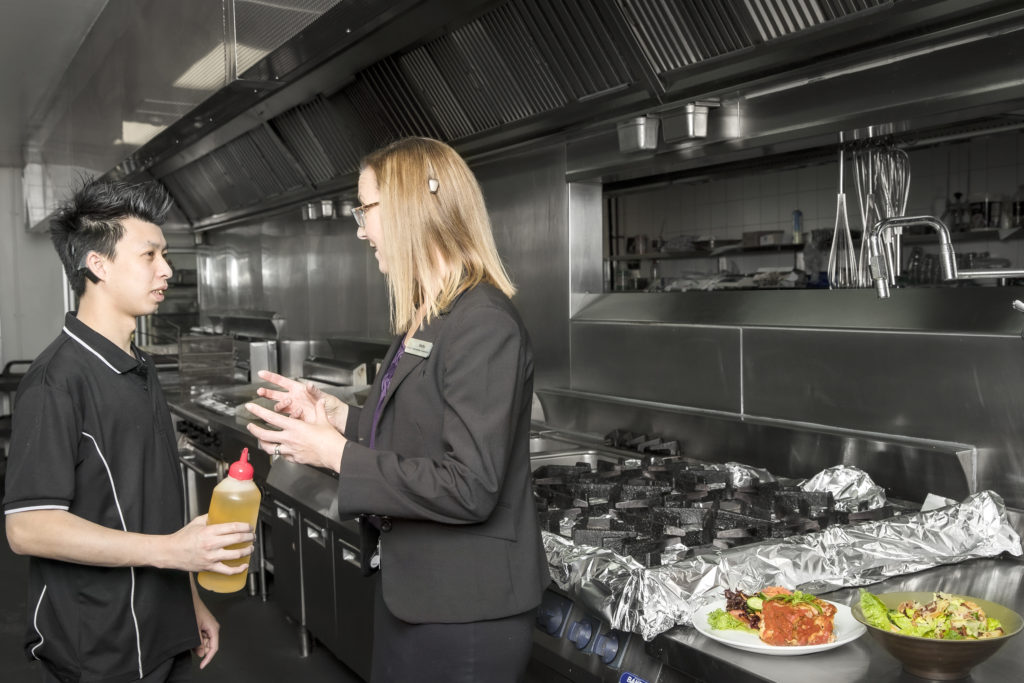Although Kelly is comfortable wearing her CochlearTM Baha® 5 Sound Processor at work, her working life has not always been easy. As a marine technician in the Navy, numerous serious ear infections required multiple mastoidectomies, leading to a medical discharge. While subsequently working in various other positions, her health issues continued, and further surgery resulted in tinnitus.
‘[The tinnitus] did not stop. I was so drained,’ remembers Kelly. ‘Going out anywhere was so difficult, you couldn’t have a conversation or eat dinner. I’d lost my career… It was the darkest time of my life.’
Having now conquered her tinnitus with the help of the Baha System and retraining therapy, Kelly confidently performs her role as a Recruitment Consultant.
For candidate interviews, she meets in a quiet location or uses her mobile phone, taking calls directly to her sound processor. She uses her Mini Microphone 2+ to hear the conversation clearly in team meetings and connects it to her computer to listen to training videos and stream webinars. ‘I just plug it in and off I go,’ says Kelly. ‘It’s perfectly clear and super easy.’

She is passionate about encouraging others with hearing loss to advocate for their needs with their employer and colleagues.
Kelly’s top tips
When applying for a new job, Kelly has three tips:
Tip 1: Be upfront and honest from the start. Explain your hearing loss to the recruiter and give examples of how you will be able to succeed in the role.
Kelly says, ‘If you turn up to the interview having not flagged your hearing issues and they see the Cochlear [sound processors], the first thing they are going to think is “Can you do the job?”’
Tip 2: Let the recruiter know your preferred method of contact and be responsive.
‘If you struggle with phone calls but don’t communicate this to a recruiter, they are going to wonder why you’re not taking their calls,’ says Kelly. ‘They are not going to be able to get the information they need [to progress your application].’
Tip 3: Be prepared to discuss any adjustments you might need and how these adjustments might easily, or inexpensively, be implemented.
‘If you attend the interview and let them know that there is nothing extra you need or you have, say, three things that would make the job easier for you, you’ll have a much better chance of succeeding,’ says Kelly. These adjustments may already align with workplace health and safety guidelines, or with the organisation’s diversity and inclusion policies.

Kelly recently recruited Danny, who has a CochlearTM Nucleus® 7 Sound Processor, as a kitchen hand. ‘We put some additional measures in place to ensure that Danny is safe in the kitchen,’ says Kelly. ‘He is on the register to ensure he is safe in an evacuation, should an alarm go off – just simple things that can make work life easier for people with hearing loss.’




